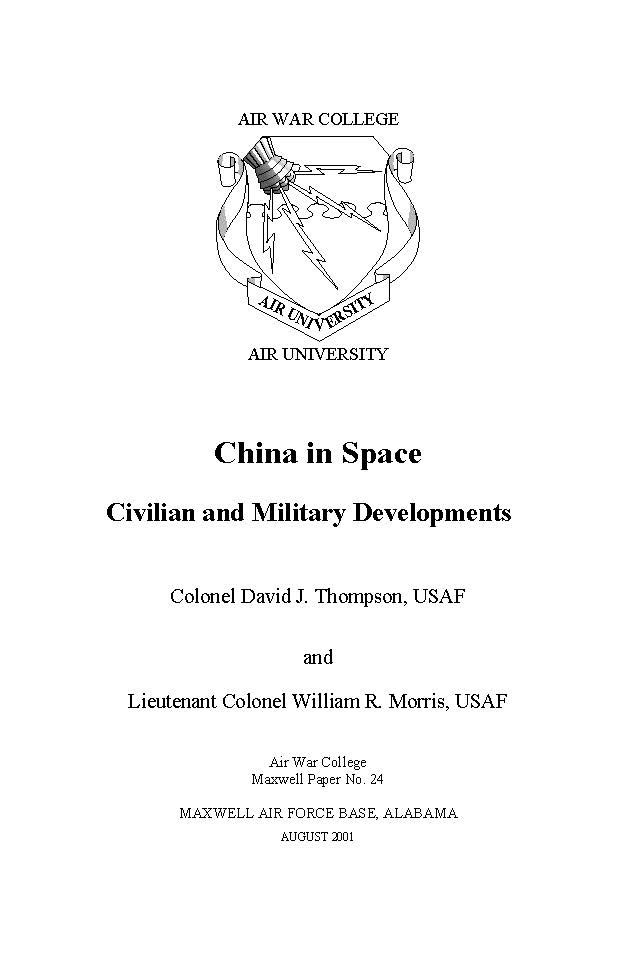 On 8 October 1956, the Central Committee of the Communist Party of China, presided over by Mao Tse-tung, established the Fifth Re-search Academy of the Ministry of National Defense to develop a space effort. This was the official beginning of the People’s Republic of China (PRC) space program. Just four years later, on 5 November 1960, China launched its first rocket becoming the fourth country be-hind Germany, the United States, and the Soviet Union, to enter space. The Chinese space program has survived periods of traumatic up-heaval during its 44-year history. Today, space is the cornerstone of China’s national science and technology development effort.3 Beijing is advancing China’s space program on a number of fronts hoping to become a recognized international space power. The Chinese leadership under Jiang Zemin wants China to become a strong, modern, and ultimately wealthy nation, in short a great power. Given its natural resources, manpower, nuclear forces, seat on the UN Security Council, and growing economy, China wants parity with other great powers. To do this Beijing has crafted a national de-velopment strategy led by certain sectors. The purpose of this paper is to discuss how China’s space program aids the government in reaching for great power.
On 8 October 1956, the Central Committee of the Communist Party of China, presided over by Mao Tse-tung, established the Fifth Re-search Academy of the Ministry of National Defense to develop a space effort. This was the official beginning of the People’s Republic of China (PRC) space program. Just four years later, on 5 November 1960, China launched its first rocket becoming the fourth country be-hind Germany, the United States, and the Soviet Union, to enter space. The Chinese space program has survived periods of traumatic up-heaval during its 44-year history. Today, space is the cornerstone of China’s national science and technology development effort.3 Beijing is advancing China’s space program on a number of fronts hoping to become a recognized international space power. The Chinese leadership under Jiang Zemin wants China to become a strong, modern, and ultimately wealthy nation, in short a great power. Given its natural resources, manpower, nuclear forces, seat on the UN Security Council, and growing economy, China wants parity with other great powers. To do this Beijing has crafted a national de-velopment strategy led by certain sectors. The purpose of this paper is to discuss how China’s space program aids the government in reaching for great power.
Author(s) • Colonel David J. Thompson, USAF, and Lieutenant Colonel William R. Morris, USAF
Year • 2001
Pages • 33
ISSN • 2575-7539
AU Press Code • MP-24